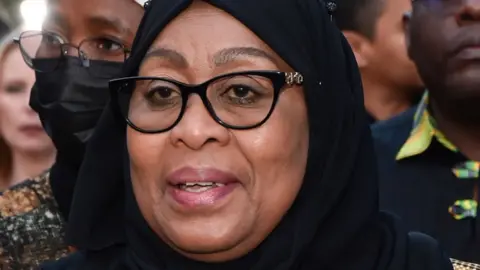When Samia Suluhu Hassan assumed Tanzania’s presidency in March 2021, the atmosphere was heavy with uncertainty. The sudden death of President John Pombe Magufuli had thrust a reserved leader into the nation’s highest office. What seemed like a temporary stewardship has evolved into a defining chapter of Tanzanian history.
Born on January 27, 1960, in Makunduchi, Zanzibar, Suluhu’s early life was modest. Her father was a teacher, and her mother a homemaker. After completing secondary school in 1977, she began as a clerk in the Ministry of Planning and Development, displaying the quiet diligence that would later mark her political style.
Her rise through the ranks of governance was steady. By the early 2000s, she was serving in Zanzibar’s regional government, and later as MP for Makunduchi (2010–2015). As Minister of State in the Vice-President’s Office for Union Affairs, she became a bridge between Zanzibar and Mainland Tanzania—a delicate balancing act that prepared her for national leadership.
In 2015, the ruling Chama Cha Mapinduzi (CCM) party chose her as Magufuli’s running mate, making history as Tanzania’s first female Vice-President. Re-elected in 2020, she was poised for continuity—until fate intervened. Magufuli’s sudden death in 2021 placed Suluhu at the helm, becoming the sixth and first female President of Tanzania.
Now, following her sweeping October 29, 2025 election victory, President Suluhu faces her biggest challenge yet—healing divisions and reaffirming Tanzania’s democratic promise.
Once “gorged by circumstance,” she now commands her moment, steering a nation eager for unity, stability, and progress. Her story is no longer about succession—it’s about substance, survival, and statesmanship.

